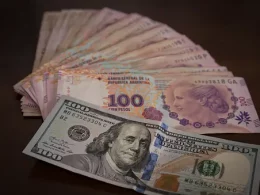The world is at a major crossroads – the battle lines are being drawn for what could be the most significant shift towards renewable energy and sustainable development. While some believe that big state intervention is necessary to achieve these goals, others argue that it’s time for market forces to take over. In this blog post, we explore how EU liberals are standing up against big state intervention in the race towards a green economy. Join us as we delve into this critical debate and discover why free-market principles may just be what our planet needs right now!
What is the Green Economy?
The “green economy” is a term used to describe an economic system that is environmentally sustainable. In other words, the green economy is based on the principle of “sustainable development” – which is defined as development that meets the needs of the present generation without compromising the ability of future generations to meet their own needs.
There are a variety of ways to measure and assess environmental sustainability, but one common metric is a country’s “ecological footprint.” This measures the amount of land and water required to support a country’s population, and can be used to compare a country’s sustainability relative to its size.
The concept of a green economy has been gaining traction in recent years, as more and more countries begin to realize the importance of environmental sustainability. In 2012, for example, the United Nations Conference on Sustainable Development (UNCSD) – also known as “Rio+20” – was held in Rio de Janeiro, Brazil. The conference marked 20 years since the 1992 United Nations Conference on Environment and Development (UNCED), also known as the “Earth Summit,” which was held in Rio de Janeiro.
One of the key outcomes of Rio+20 was the adoption of “The Future We Want,” a document that includes a commitment by member states to work towards establishing sustainable development goals (SDGs). The SDGs are a set of 17 goals that cover a broad range of environmental and social issues, including poverty eradication, gender equality, and climate change
The EU’s Liberal Stand on Green Economy
The European Union has long been a proponent of green economy and environmental protection. In recent years, the EU has been at the forefront of international efforts to combat climate change and promote sustainable development. The EU’s liberal stand on green economy is based on the belief that market-based solutions are the most effective way to protect the environment and promote economic growth.
The EU has implemented a number of policies to promote green growth, including the Emissions Trading System, which puts a price on carbon emissions. The EU is also working to phase out fossil fuel subsidies and increase funding for renewable energy. In addition, the EU is supporting international efforts to negotiate a global climate agreement.
The EU’s liberal stand on green economy has come under attack from some member states, who argue that more government intervention is needed to protect the environment. However, the majority of member states continue to support the market-based approach of the EU.
Big State Intervention in Green Economy
The European Commission’s Green Economy Package, released in March 2011, was a major step forward for the EU’s environmental policies. The package proposed a number of ambitious goals for the EU to meet over the next decade, including a 20% reduction in greenhouse gas emissions, a 20% increase in renewable energy use, and a 20% improvement in energy efficiency.
However, the package was met with strong opposition from some member states, who argued that it would be too costly and would require too much government intervention. In particular, many countries opposed the proposal to set up a “green investment bank” that would provide financing for green projects.
Despite the opposition, the Commission has continued to push for its Green Economy Package, and in December 2012 it released a revised version of the proposal. The new proposal includes some changes that aim to address some of the concerns raised by member states, but it still faces significant opposition from some quarters.
Pros and Cons of Green Economy
There are a number of pros and cons to the green economy. On the plus side, a green economy is often seen as a way to create jobs and promote economic growth. It can also help to reduce environmental pollution and improve public health. On the downside, some argue that a green economy can be costly and may not always be effective in achieving its goals.
Conclusion
The Battle for Green Economy is an important one and the EU Liberal’s stand up against big state intervention is a great step forward. In order to make sure we have a sustainable future, it’s vital that we work together to come up with solutions that allow us to transition from a fossil fuel economy to a green economy without sacrificing our standard of living and economic growth. By looking at all sides of the debate, embracing innovation, and encouraging cooperation between government and private industry, we can create policies that will help us reach these goals.











